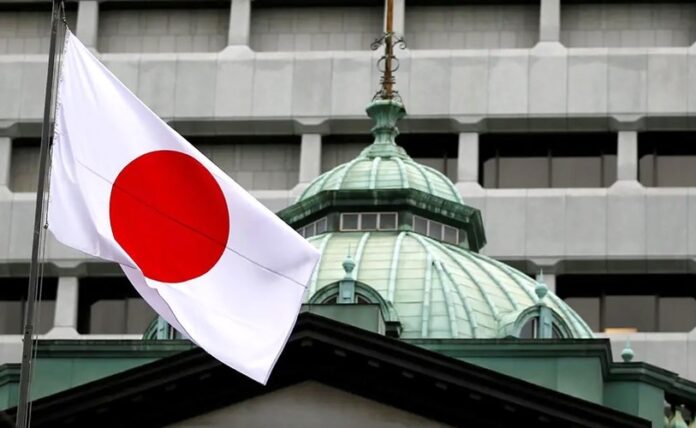Amid expectations of a decline in interest rates and a return of inflation to normal rates Asian markets had a volatile year in 2023, as inflation, rising interest rates and a faltering recovery in China dampened growth last year.
Japan’s Nikkei 225 index led the region in terms of market performance in 2023, and rose about 28% last year, according to Refinitiv data. Japanese stocks received support from improved corporate results, as well as growing optimism that the Bank of Japan may finally end its tight monetary policy. Leniency after decades of near-zero interest rates.
On the other hand, the Hang Seng Index in Hong Kong recorded the worst performance in the region, after witnessing 4 consecutive years of declines after losing nearly 14% in 2023.
What also highlights the disappointing recovery in China is The performance of the CSI 300 Index, which measures the largest listed companies in Shanghai and Shenzhen, was the third-worst performing stock market in Asia, losing 11.38% last year.
Despite this, the outlook for Asia is still bright, according to analysts from Pinebridge Investments. Here are some of the events that analysts and markets are anticipating for the Asian economy in 2024, according to a report by the American “CNBC” seen by “Arab Business”:
Reducing interest rates will be at the forefront of investors’ concerns, and the US Federal Reserve has set a road map for reducing interest rates, after indicating in the last meeting that it may reduce interest rates by 75 basis points in 2024, and 100 basis points in 2025, and banks tend to Central Banks in Asia and around the world to follow in the Fed’s footsteps.
Most interest rate hikes have stalled in major Asian economies, although banks such as the Reserve Bank of Australia are still warning they are prepared to take further measures to curb inflation.
Central banks in Southeast Asia have largely held interest rates steady in the last meetings of the year and are no longer raising rates aggressively, although banks such as the Philippine Reserve remain hawkish.
The only exception is the Bank of Japan, where investors will be watching to see if the central bank changes its negative interest rate policy.
Headline inflation in Japan has been above the Bank of Japan’s 2% target for more than 19 months, and will see a 5% rise in wage negotiations in the spring under the guidance of the Japanese Federation of Trade Unions. Homin Lee, chief macroeconomic strategist at Lombard Odier, said that these conditions are supportive of policy normalization.
Lee expects the Bank of Japan to raise interest rates to 0% in 2024 (from the current minus 0.1%). In addition to a “gradual end” to the policy of capping 10-year Japanese government bonds at 1%.
Hebei Chen, market analyst at IG International, says that 2024 is likely to see inflation rates return to normal and economic growth moderate, which will benefit the infrastructure and real estate sectors. This will therefore benefit the energy and commodity sector, as well as industries that support the artificial intelligence revolution, she said.
As interest rates fall, REITs will provide more financing options and enable asset buyouts or asset recycling – where REITs liquidate a property and use the funds to reinvest. This will ultimately push real returns higher for REIT investors.
Separately, Chen said there is a potential rebound in the global technology cycle, and Taiwan, Vietnam and Singapore could outperform due to their high focus on manufacturing and R&D facilities.
This is because Vietnam, Singapore and Malaysia – manufacturing hubs often tapped to reduce dependence on China – now produce for markets outside China. As such, it may no longer be vulnerable to a Chinese economic downturn.
Chen expects a “potential change” for Chinese stocks in 2024, although they underperformed in 2023.
Chen said that the world’s second-largest economy will likely see a modest recovery, supported by measures from the central government and improved export expectations, adding that A global technology recovery is likely to contribute to an improvement in Chinese exports.
Geopolitical developments will also be closely monitored. Chen said that elections in Taiwan, India and the United States are preparing to bring about “radical changes in the economic and diplomatic dimensions of the Asia-Pacific region.”
The official said: “The growing state of uncertainty and anxiety, fueled by the rapidly evolving international scene and the critical point in China-US relations, will not make it easy for global investors to find solace.”
Philip Capital’s Mack said that the elections in Taiwan will be the geopolitical event to watch, saying that “how China reacts to the election results, especially if the pro-independence (Democratic Progressive) Party retains power, could affect the recent warming in relations with China.” Its main trading partner is Europe.
Next year’s US elections will also be in focus. She said if former President Donald Trump returns to the White House, investor confidence may be eroded and stock markets affected, due to uncertainty about US trade policies and financial spending.

















